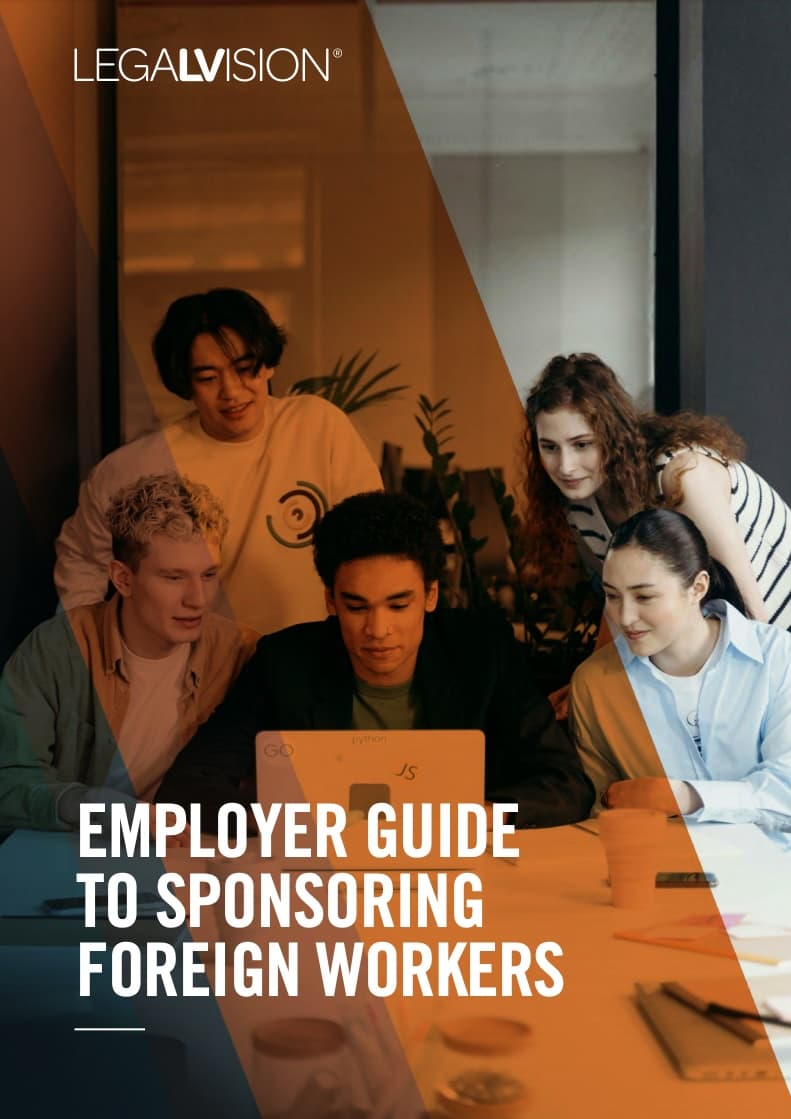In Short
- The Skilling Australians Fund (SAF) levy applies to employers sponsoring foreign workers under TSS, ENS, and RSMS visas.
- Levy amounts depend on your business’s turnover and the length of the visa.
- Employers must pay the levy upfront when lodging the sponsorship application, and it is non-refundable in most cases.
Tips for Businesses
When planning to sponsor foreign workers, budget for the SAF levy as part of the visa process. Check your business turnover to calculate the correct levy amount. Since the levy is generally non-refundable, ensure your sponsorship application is accurate and complete to avoid unnecessary costs.
Australian employers who sponsor overseas workers must pay the SAF levy or the Skilling Australian Fund, also known as the Nomination Training Contribution Charge (NTCC). This article will explain the new Skilling Australians Fund (SAF) and how it will affect your business.
What is the Skilling Australians Fund (SAF) Levy?
The purpose of the SAF levy is to require employers that employ foreign workers to contribute to the broader development of skilled Australians. This is so that, in the future, their employment needs can be met in Australia. The money goes into the Skilling Australians Fund (SAF), a government initiative to grow the number of apprenticeships and traineeships in Australia.
Who Needs to Pay For It?
The SAF levy applies to any Australian employer who sponsors an employee under the:
- Temporary Skill Shortage (TSS) visa 482;
- Skilled Employer Sponsored Regional (SESR) (Provisional) visa 494;
- Employer Nomination Scheme (ENS) visa 186; or
- Regional Sponsored Migration Scheme (RSMS) visa 187.
Additionally, as the employer, you must pay this levy and cannot transfer it to your employee.
Continue reading this article below the formCall 1300 544 755 for urgent assistance.
Otherwise, complete this form, and we will contact you within one business day.
How Much is It?
The cost depends on the:
- annual turnover of your business in the previous financial year before lodging the nomination application; and
- duration for which your business sponsors the overseas worker.
The table below indicates the cost for small and larger businesses employing foreign workers under TSS, ENS and RSMS visas.
| Business size | TSS visa | ENS / RSMS visas |
| Small (annual turnover of less than $10 million) | $1,200 per year and per worker | $3,000 one-off |
| Other businesses (annual turnover of $10 million or more) | $1,800 per year and per worker | $5,000 one-off |
Furthermore, for TSS visa sponsors, the levy must be paid annually. This means the total cost will depend on how long you intend to sponsor the foreign worker in Australia.
Is the Amount Capped?
Yes, the SAF fee is capped for employers. For the financial year ending 30 June 2018, the capped limit was:
- $8,000 for the TSS visas (regardless of the occupation list); and
- $5,500 for the ENS/RSMS visas.

Sponsoring overseas workers as an Australian business is complicated. Let us simplify it for you with this free employer guide.
Are There Any Exemptions?
There are no exemptions for the SAF levy except for the occupations of Minister of Religion (including Bishops) and Religious Assistants nominated under the Labour Agreement streams of the TSS (Subclass 482) or ENS (Subclass 186) visas.
Therefore, for all other workers nominated under a Labour Agreement, you must pay the SAF levy.
When Should I Pay?
The SAF levy needs to be paid in full at the time you lodge a nomination application. This includes where a nomination application is being lodged to allow a TSS visa holder to change employers in the same occupation or their occupation with the same employer. In practice, you can nominate how many years you intend to sponsor the applicant and calculate their SAF levy accordingly.
Is It Tax Deductible?
Yes, SAF levy payments are tax deductible.
Is It Refundable?
The SAF levy can be refunded in some cases. The Migration Amendment (Skilling Australians Fund) Regulations 2018 outlines the scenarios in which a refund may be appropriate. These scenarios include when:
- the nomination is withdrawn because the sponsorship application was withdrawn or refused;
- the sponsorship and visa applications are approved, but the overseas skilled worker does not arrive or commence employment with the employer;
- the sponsorship and nomination application is approved, but the visa application is refused on health or character grounds;
- an employee (TSS 482 holder) leaves their sponsor within 12 months of commencing their employment. In this situation, the employer may submit a written request to the Department of Immigration requesting a SAF refund. The refund will generally be issued for the remaining unused period. However, this does not apply to ENS or RSMS holders who leave their employer within the first 12 months of employment.
Key Takeaways
If you are a business sponsoring workers from overseas under the Temporary Skill Shortage (TSS) or Employer Nomination Scheme (ENS) and Regional Skilled Migration Scheme (RSMS), then the SAF levy applies to you. You need to pay the government either an annual fee for your workers under a TSS visa or a one-off fee for your workers under the ENS/RSMS visa. The amount you need to pay will depend on the turnover of your business.
If you are sponsoring a foreign worker, our experienced immigration lawyers can assist as part of our LegalVision membership. For a low monthly fee, you will have unlimited access to lawyers to answer your questions and draft and review your documents. Call us today on 1800 485 860 or visit our membership page.
Frequently Asked Questions
Yes, the Skilling Australians Fund (SAF) levy is tax deductible for employers. This means businesses can claim the levy as a deduction in their tax returns, reducing their taxable income.
There are no exemptions for the SAF levy, except for religious workers nominated under the Labour Agreement streams for the Temporary Skill Shortage (TSS) or Employer Nomination Scheme (ENS) visas. You, as the employer, must pay the SAF levy for all other workers nominated under a Labour Agreement.
We appreciate your feedback – your submission has been successfully received.












